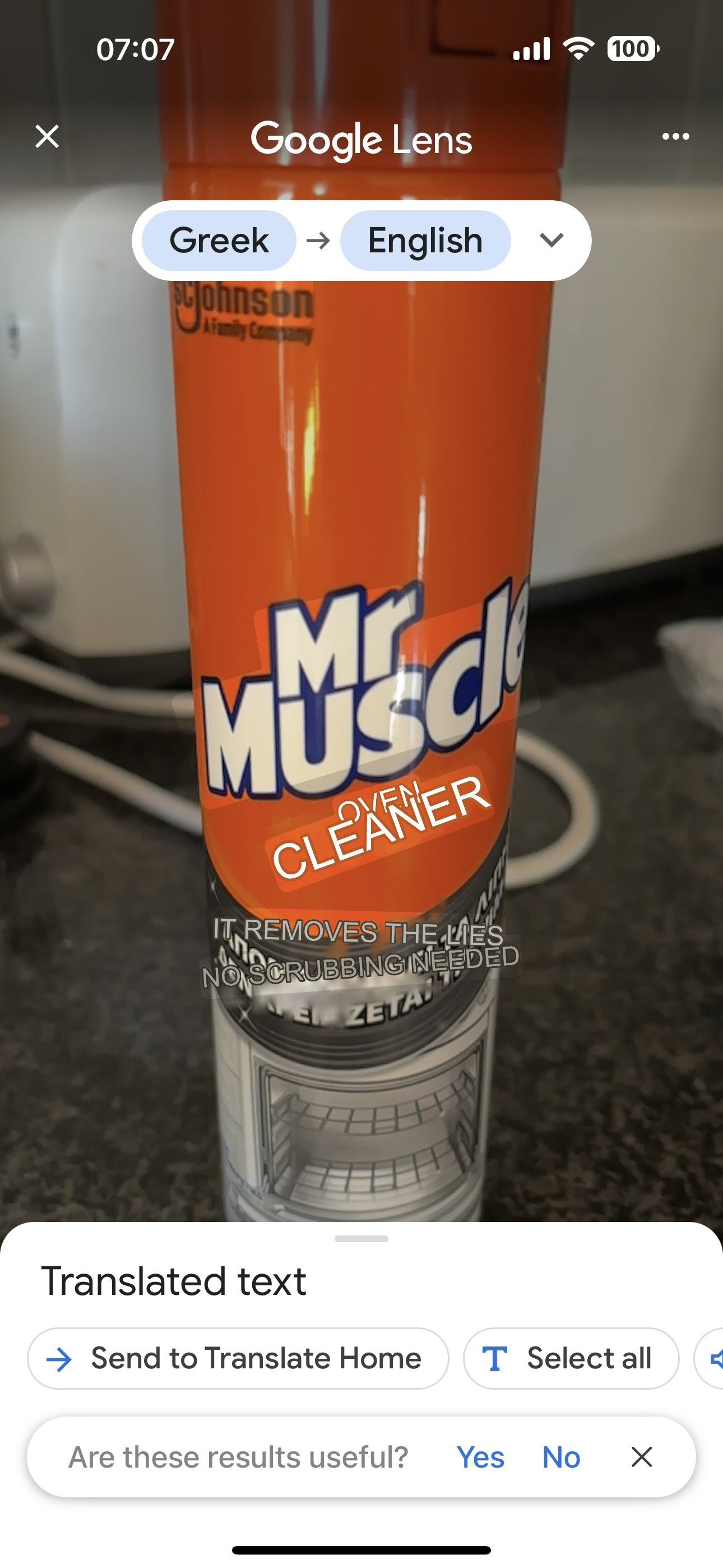Surely it should be less hassle and more fun. Is there a trick to pulling it off in Cyprus?
By Philippa Tracy
As I struggle in Alpha Mega with my Google translate app in one hand, hovering over the instructions on a tin of Mr Muscle oven cleaner in the other, I do wonder if my Greek should be better by now. Very probably. But I am not alone in my failures. And possibly for good reason. When I watched the Eurovision song contest last weekend (not something I usually do), I also felt better. I noticed that the hosts presented in English, and quite a few of the songs were also performed in English. Why? It is the lingua franca of diplomacy, technology, education and business. Even some forms of entertainment. And yes, that category does include Eurovision. Which is all a very convenient excuse for not learning Greek. Or is it?
Back in 2017, in the midst of post-Brexit negotiations and rising tensions, then president of the European Commission Jean-Claude Juncker said that, “slowly but surely English is losing importance in Europe.” Apparently really quite slowly at Eurovision. And not at all in Cyprus, as the song was in English. Although, this year more than half of the entries chose to sing in their own official language. The contest website hailed it as a celebration of culture and “a new high for linguistic diversity.” Language, of course, is culture; it is impossible to understand one without the other. It is also, on a more mundane level, quite important to have some fluency in the local language if you want to know what you are buying in a supermarket or navigate any kind of bureaucracy.
Generally, in Cyprus many people speak English well. This is not a reason not to learn Greek. But in my defence, I would say that Greek is definitely not an easy language for a native English speaker because of the cultural and linguistic differences from English. That could be said of many languages: Lithuanian, Thai, Mongolian and Somali, among others. And according to the ranking tables I found, all of these languages, including Greek, are rated as a category three difficulty, out of four; Mandarin and Arabic are harder, as are a couple of others. At level three, languages are estimated to take over 1,000 classroom, or practice, hours for a native English speaker to achieve a ‘general professional proficiency’ level in speaking and listening. That is a pretty big commitment.

I have to admit my formal efforts amount to way less than 1,000 hours of classroom lessons in Greek. In fact, less than 100. But my experience at the hands of government language classes did very little to boost my enthusiasm or increase my actual skills. The teacher was very nice but the classes started late in the year, and she was often missing or cancelled last minute. And in a large group with mixed levels of experience and skills, there was very little differentiation. I am being generous: there was no differentiation in the teaching. Consequently, I spent a few months working my way laboriously through the alphabet, which I already knew, and learning a few new words. The most impressive of which, or at least the one I am most proud of, was ‘vatrachos’. Not easy to pronounce, it means frog. Very useful at both Alpha Mega and Immigration, as you can imagine.
While I worked my way through the alphabet every Wednesday afternoon (for a while), I copied down a few words with each letter. Not all of them new. I did as I was told, like a good student. And my Greek handwriting got quite good. My speaking less so. I still couldn’t put a sentence together to actually communicate in Greek. Without a hint of irony, I searched the book shelf, dusted off, and revisited with enthusiasm, the Greek in Three Months text book I bought back in 1986! I don’t know why because it didn’t work the first time round either. At the time, I lived in Greece for a year, in a place where nobody actually spoke English and I traded lessons with a native Greek speaker. I did learn the alphabet and managed to get by on broken Greek. But that was nearly 40 years ago. At least the alphabet stuck.
So, to all you smug polyglots out there, do not judge. Yes, the Brits are terrible at learning foreign languages but there is a reason. The Guardian, post-Brexit described the UK as “mired in the relegation zone of European linguistic proficiency.” Many Europeans study two or more foreign languages when young. In the UK, foreign language teaching appears to be in decline, despite the government’s best efforts to encourage more language learning in schools. But which one do you want to learn at school, assuming you have a choice?

It’s easy to gloat when you speak great English as a second or third language. It seems the problem comes down to the basic economics of language learning. English speakers are less inclined to learn other languages because there is not generally such an imperative for them. Unless they decide to go and live abroad. Then it gets tricky.
I do live abroad. And I have tried. My recent efforts include Duolingo. It is free for a start, unlike other platforms. But as I know from my government classes, cheap doesn’t always equal results. Spending even a few minutes a day translating sentences like, ‘gyro with rice,’ ‘Anna and the mango,’ ‘the water is pink’ and “hello Canada” probably isn’t going to cut it in the long run. It’s fun when you get a high score, bells ring and there is congratulatory applause and bright little messages like “you’re dripping XP”. What are XP? Basically points; the currency of success. At least on the app. It is a motivation of sorts. It makes me think of my childhood anyway. Game show host Bruce Forsyth had a catch-phrase in the 1980s: “points mean prizes”. That was very silly too. But it takes me back to when I first started trying to learn Greek.
I have even asked AI how to learn Greek quickly. The answer was somewhat disappointing, really. The first thing I was told was to set clear goals and use apps. I think I have already tried that. And, as I know from experience, you don’t make progress by just trying to learn lots of unconnected, even useful, vocabulary. The only Brits I know who actually speak Greek with any level of confidence and proficiency, immersed themselves in a three-month intensive course when they first arrived on the island. And then got a job or practised having conversations with their in-laws. Conversational confidence is crucial. So unless, and until, I speak better Greek than other people on the island speak English, the reward is not going to be great for either party.
As PG Wodehouse puts it so stylishly in, The Luck of the Bodkins: “there had crept a look of furtive shame, the shifty, hangdog look which announces that an Englishman is about to talk French.” Poor Monty Bodkin and his attempt to practise his French while in France. I feel a level of affinity with him, his shaky command of a foreign language, his embarrassment and his terrible accent. It is the same for me and Greek. Understanding the culture of the place you live in is obviously desirable. And for practical reasons, it is important to learn the language. If only it was easier, and I could find a way to do it with less hassle and more fun.






Click here to change your cookie preferences